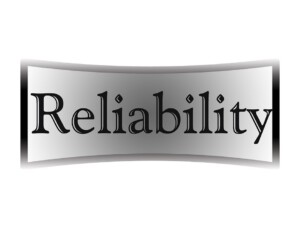
Suppliers are one of the most important and essential aspects of almost every business and determine its success or failure. The right suppliers provide the most suitable goods or services at the most suitable prices and in the right time frames for your specific business needs.
The supplier selection, evaluation, and sourcing processes are some of the most vital processes that a business has to deal with effectively and efficiently. All these processes and many more determine the future of a business. It is of the essence to take all these processes very seriously. Choosing the right supplier means that you’ll get quality products and satisfied customers. When customers are satisfied it’s a win for your business.
Suppliers are significant because not only do they provide the products and services that you need, they also can be important sources of information. They can also help you evaluate the potential of new products, track competitors’ actions and identify promising opportunities. Besides, suppliers can turn into business partners, helping you cut costs, improve product design and even fund new marketing efforts.
Finding the right suppliers for your business can be a very challenging task. How do you find suppliers and how do you source the right ones? Identifying the right and reliable suppliers for a company is one of the most crucial duties in the procurement process. This guide will be important for you whether you are looking for manufacturers, raw materials, or finished products to resell. So, what makes the right supplier and what do you look for when selecting a suitable supplier?
1. Financial Stability
A key indicator to always look at is the stability of the supplier in question. Go for suppliers who have been in business for a longer period. Stability is important, especially if you are entering into a long-term contract with a supplier or they are the only supplier of a particular item you need for your business.
Another factor that you ought to have in mind when you think of stability is finances. Most importantly their financial credentials should show stability. It’s always worth making sure your supplier has a sufficiently strong cash flow to deliver what you want when you need it. A credit check will help reassure you that they won’t go out of business when you need them most.
2. Location
Think about location when choosing suppliers. Dealing with distant suppliers might mean longer delivery times and extra freight costs. If you need something quickly, a local supplier might be a better option. But be sure to investigate the freight policies of distant suppliers. Bulk orders, for instance, might get you free shipping or you might be able to combine different orders to reduce costs.
3. Reliability

Reliable suppliers deliver the right goods or services on time, as aforementioned. Large suppliers are generally reliable because they have enough resources and systems in place to make sure they can still deliver if anything goes wrong.
However, you can often develop a closer relationship with small suppliers, especially if you are their main customer. In these cases, your supplier may also respond better to different requests, such as expedited orders or holding on to inventory stock for you.
4. Price
Price is a very crucial element when choosing suppliers. If you are in a new business, a key consideration for choosing suppliers may be affordability. If you are focused on managing your finances, competitively priced suppliers are an attractive option. However, cheap does not always represent the best value for money.
If the quality of your supplier’s product or service is poor, you may incur extra costs for returns and replacements, and risk losing business with any delays that result. If you decide to pass poor quality products on to your customers, you risk damaging your business’ brand reputation.
5. Supplier Group
While single sourcing has its advantages it also brings along demerits. It is always wise to develop close business relationships with other suppliers. Think of this: if your single supplier goes out of business or is unable to deliver your business risks its survival in the ever-competitive business world.
It is therefore important to have multiple suppliers as this will also facilitate the productivity of your business as well as promote competition among the suppliers. It might be a better idea to use a carefully selected group of suppliers as insurance against any problems occurring.
6. Check for certification
Verify the certifications of sellers before doing any business with them. Many buyers have minimal requirements when it comes to supplier quality certifications. Discover suppliers that are certified to your quality standards.
7.Scalability
Determine how flexible the supplier is when it comes to providing small quantities and high volume orders. If you are looking for smaller quantities or prototypes to start, you will most likely find suppliers that focus on that volume. If you grow to require extremely large shipments of the product over time, you could quickly outgrow your original supplier selection.
Knowing what the growth pattern is for the product you are sourcing before selecting a supplier will allow you to partner with a supplier that can painlessly scale to meet your changing needs.
8.Communication skills

In any business setting, communication is very crucial. The best suppliers are open and direct. They know you may have made promises to your customers. And they know it doesn’t help to keep you in the dark about a bad situation.
If there’s a change to the status quo, they tell you upfront. If they need clarification about requirements, they ask for it.
Conclusion

Finding a supplier can be one of the toughest, most stressful parts of sourcing a product. It’s important to find a supplier that is easy to work with and will give you the best possible product.
Just because a supplier shows you a few amazing product samples doesn’t mean they can live up to those promises. Considering these eight qualities of a good supplier, will help you determine whether a particular supplier is best for your supply chain, your customers, and your business.
